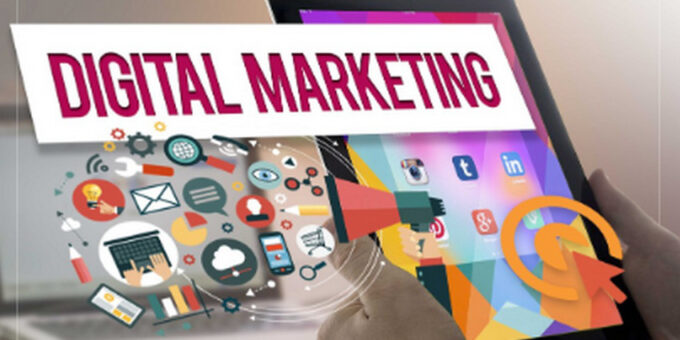
Digital marketing has revolutionized how businesses reach and engage audiences. It combines technology and strategy to create impactful campaigns. Whether you’re a small business or a global brand, digital marketing is essential.
What Is Digital Marketing?
Digital marketing promotes products and services using online platforms. It involves tools like SEO, social media, and paid ads. Unlike traditional marketing, digital strategies are data-driven and highly targeted. Businesses leverage digital channels to connect with customers and drive conversions.
Why Digital Marketing Matters
The digital world is where people spend most of their time today. Digital marketing ensures businesses stay relevant and visible. It allows companies to reach audiences in real-time, building lasting relationships. Additionally, it’s cost-effective compared to traditional methods like TV ads or print.
Key Components of Digital Marketing
Search Engine Optimization (SEO)
SEO improves website visibility in search engine results. It focuses on optimizing keywords, content, and technical aspects of a site. High rankings in search engines drive organic traffic and build credibility. Tools like Google Analytics help track progress and refine strategies.
Content Marketing
Content marketing focuses on creating valuable content that attracts and engages audiences. Blogs, videos, and infographics provide information that solves user problems. High-quality content not only builds trust but also supports SEO and social media efforts.
Social Media Marketing
Social media platforms like Facebook, Instagram, and LinkedIn are essential for digital campaigns. Businesses use them to share updates, run ads, and engage followers. Social media marketing boosts brand visibility and fosters customer relationships.
Email Marketing
Email marketing delivers personalized messages directly to your audience. It’s cost-effective and perfect for building customer loyalty. Successful email campaigns use compelling subject lines and clear calls to action. Automation tools simplify the process.
Pay-Per-Click Advertising (PPC)
PPC advertising generates immediate traffic by placing ads at the top of search results. Businesses pay only when users click the ad. Platforms like Google Ads allow precise targeting based on location, interests, or behavior. This ensures better ROI and visibility.
Benefits of Digital Marketing
Global Reach
Digital marketing allows businesses to connect with audiences worldwide. Online platforms break down geographic barriers, offering unlimited growth potential. Even small businesses can compete with larger brands.
Cost-Effectiveness
Digital campaigns are more affordable than traditional advertising methods. Strategies like SEO and social media require lower budgets but yield high returns. Businesses save money while reaching larger audiences.
Measurable Results
Digital marketing offers detailed analytics to track campaign performance. Metrics like traffic, conversions, and engagement rates help refine strategies. These insights enable businesses to focus on what works and eliminate wasteful spending.
Targeted Marketing
Unlike traditional marketing, digital strategies target specific demographics. Ads can focus on age, location, or interests for precise reach. Targeted marketing increases the likelihood of conversions and builds stronger connections.
Challenges in Digital Marketing
High Competition
The digital space is saturated with businesses vying for attention. Standing out requires creative and consistent efforts. Unique content and innovative campaigns help capture audience interest.
Constantly Changing Algorithms
Platforms like Google and Facebook frequently update algorithms. These changes can affect rankings and visibility. Staying informed about updates is crucial for maintaining effective strategies.
User Privacy Concerns
As data collection becomes more sophisticated, privacy concerns grow. Businesses must comply with regulations like GDPR to protect user information. Transparent practices build trust and ensure long-term success.
Strategies for Effective Digital Marketing
Define Clear Goals
Start every campaign with well-defined objectives. Whether it’s increasing traffic or driving sales, clear goals guide your efforts. Measurable goals ensure better focus and accountability.
Focus on Quality Content
Content is the backbone of digital marketing. Create content that educates, entertains, or solves problems for your audience. Use a mix of formats like videos, blogs, and infographics to engage effectively.
Leverage Social Media Trends
Keep up with social media trends to stay relevant. Platforms like TikTok and Instagram offer opportunities to connect with younger audiences. Engaging with trends boosts visibility and keeps your brand fresh.
Optimize for Mobile Users
Most users access digital platforms through mobile devices. Ensure your website and campaigns are mobile-friendly for better user experiences. Mobile optimization improves rankings and enhances engagement.
Use Data to Refine Strategies
Data analytics tools provide valuable insights into audience behavior. Use this information to refine targeting, content, and budgets. Regular analysis ensures campaigns stay effective and cost-efficient.
Emerging Trends in Digital Marketing
Artificial Intelligence (AI)
AI is transforming digital marketing by automating tasks and analyzing data. Chatbots, for instance, provide instant customer support 24/7. AI-driven insights also enhance personalization, delivering tailored content to users.
Voice Search Optimization
Voice search is growing rapidly with devices like Alexa and Google Assistant. Optimizing for voice search involves using conversational keywords. This ensures your content aligns with how people naturally speak.
Video Marketing
Video content remains a dominant force in digital marketing. Platforms like YouTube and Instagram Reels are perfect for showcasing products or tutorials. Live streaming adds an interactive element, boosting real-time engagement.
Conclusion
Digital marketing is the cornerstone of modern business success. It offers unparalleled opportunities to reach and engage global audiences. By focusing on quality content, targeted strategies, and emerging trends, businesses can thrive in the digital landscape. With the right approach, digital marketing ensures growth, visibility, and long-term impact.